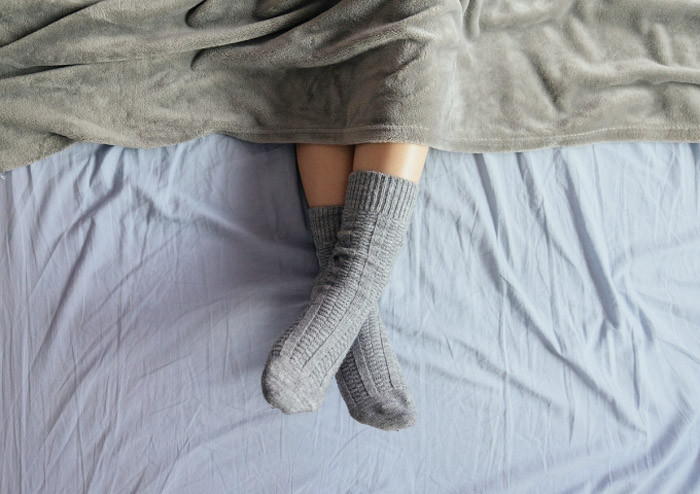Wearing socks to bed helps improve blood circulation, keeps feet warm, helps people fall asleep faster, increases total sleep time, thereby improving longevity.
In Japan, people wear socks almost all year round, not even taking them off when sleeping. This is also the country with the highest average life expectancy in the world. For 20 consecutive years, the Japanese life expectancy reached 84.6. Scientists believe that people's habit of wearing socks may be related to health and longevity.
In fact, many analyses have shown the benefits of wearing socks and keeping your feet warm in general. Research published in the International Journal of Physiological Anthropology shows that wearing socks improves sleep quality and makes people fall asleep 15 minutes earlier than usual. This habit can increase the average total sleep time by about 32 minutes. Wearing socks to sleep protects the temperature of the feet, blood circulation is more effective, maintaining a relatively stable body temperature, helping people fall asleep easily.
Meanwhile, research from the University of Surrey and Northwestern University in the US shows that poor quality sleep can reduce life expectancy by 10%. In fact, people who regularly have trouble sleeping have reduced natural immunity and an increased risk of diabetes and neurological diseases.
Sleeping with socks on can also improve symptoms of menopausal hot flashes. These are sudden bursts of heat, night sweats, palpitations, and facial flushing. They are related to hormonal imbalances during menopause that affect temperature regulation. Wearing socks to bed can lower the body’s core temperature at night, improving hot flashes.

A man wears socks to bed
Some people often have cold hands and feet, mainly because the blood vessels are over-constricted, reducing the amount of blood to the hands and feet, causing the fingers to feel cold and numb. Wearing socks to bed can help reduce this condition and keep the feet warm.
In fact, during the day, there is sunlight, full of yang energy, and body activities help speed up metabolism, making the human body temperature higher. When the sun sets at night, the outside temperature begins to drop, and the human body temperature drops accordingly (about 1-2 degrees Celsius). At this time, metabolism slows down, the feet are the furthest from the heart, and the circulation efficiency will be poor, causing the feet to become cold and unable to keep up with the human body. Low body temperature and low foot temperature can easily affect sleep.
Besides wearing socks to bed, some other habits also help Japan be among the countries with the highest life expectancy in the world.
The Japanese eat bland food, using little salt, oil and seasoning. Compared to the Chinese who prefer fried, stir-fried and braised dishes, the Japanese prefer an "original" diet, using simple cooking methods, trying not to lose the nutrients of the food.
The Japanese also love brain games. Even at an advanced age, they often visit game rooms and even play electronic sports. This form of "brain exercise" helps prevent aging and improve cognitive performance.
According to VnExpress